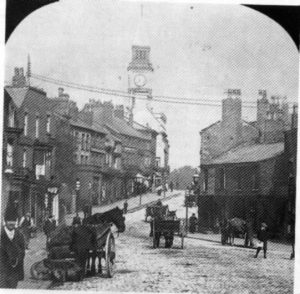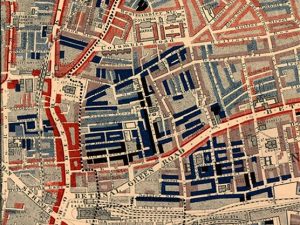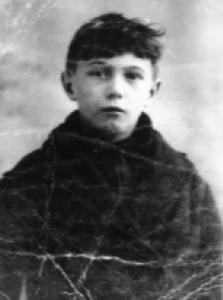We’re delighted to share a guest blog post written by Andrew Alston. Here he investigates the life of Edwin Crew – a relative connection he shares with Auntie Mabel founder, Graham Barker. It’s a fascinating account of a remarkable man. Thanks for sharing it with us, Andrew.
I first came across Edwin Crew while sorting out great great grandmother Alice Preston’s family. Chorley in Lancashire has relatively few families with the Preston surname, despite being only 10 miles from the place where the name mostly originated, but they all seem to have used the same set of common forenames. And so I found Jane Preston, one of my second cousins four times removed, marrying Edwin Crew. I was working at Crewe, so the name stuck out a bit. The newlyweds moved to St. George’s Street, a smart street occupied by people in “the professions”. Virtually all my Chorley relatives worked in mills and mines, so something different was worth following up.
 Victoria Chorley: Market Street
Victoria Chorley: Market Street
Edwin Crew was born in Spitalfields, in London’s East End, on 8th November 1855. Not the genteel sort of East End shown in the soap opera, but an area crowded with textile workers, mostly weaving silk on hand looms in their own homes, with the “manufacturer” paying them a pittance. Edward Street, where he was born, seems to have disappeared early on. Bacon Street, where the family had been in 1851, consisted of 3 and 4 storey buildings, which by the end of the 19th century had gone even further downhill. Charles Booth’s poverty survey in the 1890s describes “thieves, prostitutes, mess, ragged children”.
Spitalfields had become the centre of silk production when Huguenot weavers fled persecution in France. Later, Jewish and then Asian immigrants would move into the area.
Booth’s poverty map (1889) shows Bacon Street coloured Black: “Lowest class. Vicious, semi-criminal.”
Edwin’s father, silk dresser Thomas Crew, was born in Spitalfields too – the Crew surname is common there – but had married Ellen Wildgoose 200 miles away in Macclesfield. Macclesfield had become the northern centre of silk production by the beginning of the 19th century, but unlike Spitalfields, work there was organised in a factory system. The Crew name is common in Macclesfield too. A different Edwin Crew owned substantial mills there.
Thomas and Ellen moved back and forth between Macclesfield and Spitalfields. Children were born at each end of their journeys. The places of birth shown in censuses often don’t coincide with the birth registrations, so Thomas and Ellen were as confused as I became. The move sometimes came between a child’s birth and their baptism. It seems likely that the family travelled by train between the places. Thomas appeared to be a silk dyer when in the south, but in the north he was a silk dresser or finisher, applying the right finish to cloth woven by others.

